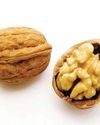Calcium is essential for strong bones—that’s a fact. But does this mean you need high doses of calcium supplements? Will your bones crumble if you don’t? Here’s what science has to say.

After the FDA authorized a health claim in 1993—that calcium in foods and supplements may reduce the risk for osteoporosis—calcium became a widely marketed item. But government nutritional surveys show that most Americans still consume less than the recommended amount from food and supplements: 1,000 mg daily for adults, and 1,200 mg daily for women after age 50 and for men after age 70. About three out of four women over the age of 60, and nearly as many teenage girls, fall short, as do about half of boys and men in the same age groups. And there are slightly smaller but significant shortfalls among all the other age groups.
More important: Are you deficient? The answer isn’t as simple as saying, “take so many milligrams a day and you’ll be okay.” Just as a shortfall is bad for your health, so is taking too much. Excess levels of calcium can increase risk for heart disease, kidney stones, and possibly colon cancer. The amount of calcium in your food, some health conditions, and some medications can all influence your calcium levels.
When it comes to taking calcium supplements, individual needs really do vary. In fact, scientists who analyzed decades of calcium research concluded that “the proper dosages of calcium supplementation for people are actually not clear.”
CALCIUM AND BONE HEALTH
In the human body, 99 percent of calcium is found in bones and teeth. The remaining 1 percent is in the blood, where it’s essential for many functions, including the contraction and relaxation of blood vessels, muscle function, transmission of signals through nerves, and hormone secretion. If there isn’t enough calcium in the blood, additional calcium will be released from bones.
This story is from the September 2019 edition of Better Nutrition.
Start your 7-day Magzter GOLD free trial to access thousands of curated premium stories, and 9,000+ magazines and newspapers.
Already a subscriber ? Sign In
This story is from the September 2019 edition of Better Nutrition.
Start your 7-day Magzter GOLD free trial to access thousands of curated premium stories, and 9,000+ magazines and newspapers.
Already a subscriber? Sign In

Strike A Healing Chord
Soothe your mind, body, and spirit with three simple sound therapy techniques for self-care.

Laura's Gourmet Granola
If you’re tired of granola that’s more candy than health food, chef and entrepreneur Laura Briscoe’s offerings are just what you’ve been looking for.

News Bites
Caffeine, Peanuts, CoQ10, and Iron Deficiency.

The Overlooked Keys to a Healthy Gallbladder
Keep your bile thin and free-flowing by focusing on supportive foods, supplements, and physical activity.

Go Nutty This Year
This über-healthy alternative to traditional lattes features homemadewalnut “mylk,” along with antioxidant-rich green tea and berries.

The Three Stages of Infection
What you need before, during and after an illness, and why you need different fixes for each stage.
Taming the Flames
How to beat back chronic inflammation and protect yourself from related disease.

Deconstructing the Flexitarian Diet
How being a part-time vegan can make you healthier.

Brain Regain
How one senior used a leptin-focused diet (high-fat, no carbs) to recover from a cognitive injury, reconnect with his family, and reclaim his health.

Healthy Aging— Head To Toe
Science-backed supplements to protect all your parts.